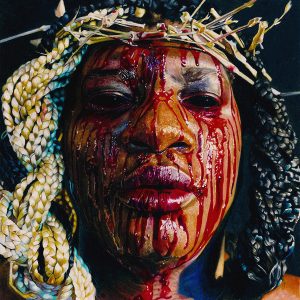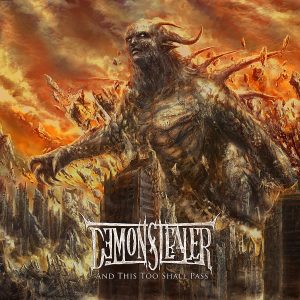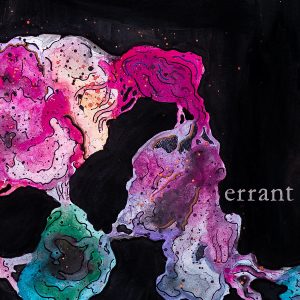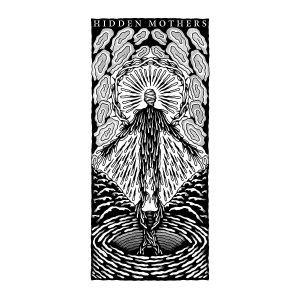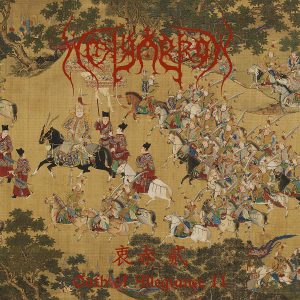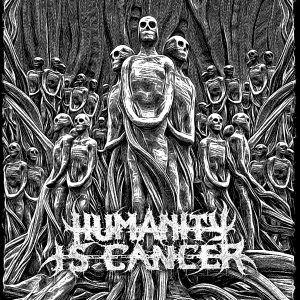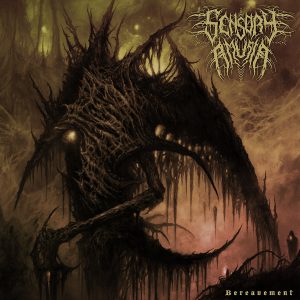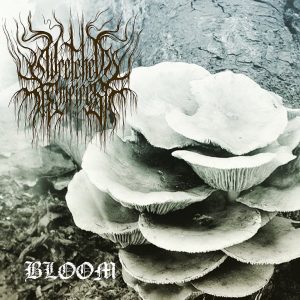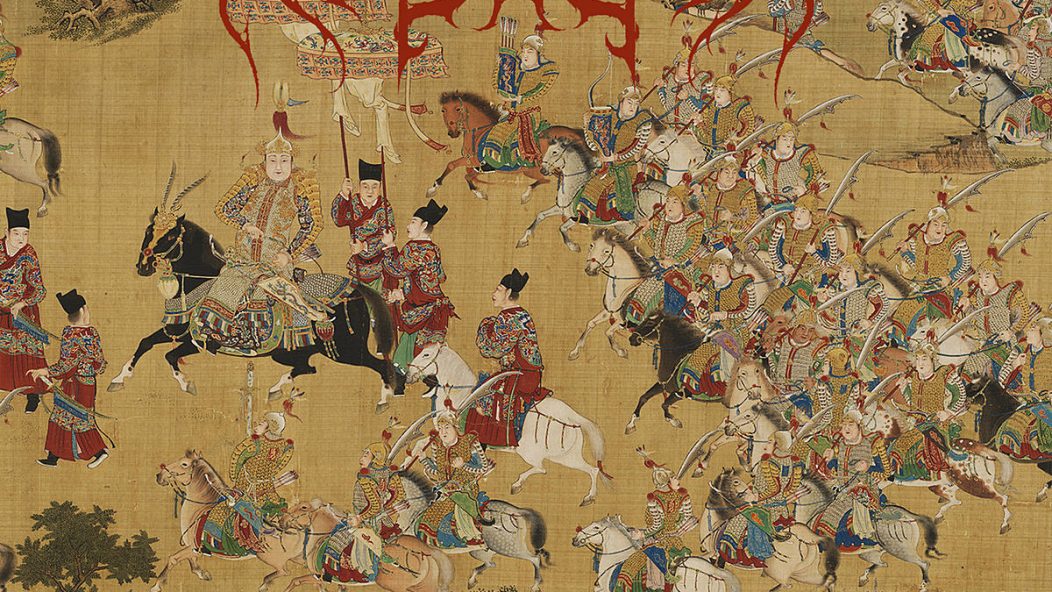
Ivan Belcic's Top 10 EPs of 2020

I’m not sure if it’s anything specific to this year or that I’ve just been paying more attention, but it’s felt like the subject of the EP as a medium, and the boundary between it and the full-length release, has been debated both more hotly and more frequently than I can otherwise remember. EPs have been around at least since the 1950s, occupying the nebulous space between a full-length album and a one-off single, but the role they’ve played as both a vessel for a certain type of creative intent and experimentation as well as the degree to which they’re regarded as “official” releases has long varied both over time and across genre boundaries.
While consensus typically assumes that an EP is shorter than a full-length LP, it’s easy to find counterexamples that challenge this conception. Skeleton’s self-titled debut and Gulch’s Impenetrable Cerebral Fortress, both released this year, come in under 30 minutes, with the latter barely cracking the 15-minute marker. Yet both were presented as full-length releases and have been largely received as such. It’s more or less safe to bet against an EP breaking any length records, but you’re not as secure in taking for granted a 30-plus-minute runtime for an LP.
Going by song quantity also comes with a readily available set of counterexamples and counterpoints. Funeral doom band Slow’s album IV – Mythologiae runs almost an hour and 15 minutes and contains six songs. But according to Couch Slut vocalist Megan Osztrosits, her band’s six-track debut album My Life as a Woman was repeatedly referred to as an EP. Osztrosits has remarked more than once on the arbitrariness of defining a release as an EP versus an LP based on duration or track quantity, citing the greater number of tracks on Couch Slut’s latest album possibly resulting in it being characterized by press as an LP despite its similar duration as compared to their first.
our first record was called an EP by every publication because i guess its only six songs? most recent is almost a full minute shorter but because it’s 9 songs it’s an album. who decides this?
— the bodice of christ (@megans__law) November 28, 2020
Did Slow create a full-length record with the same number of tracks as Couch Slut’s “EP” simply by virtue of taking more time to get where they’re going? Are hardcore and grindcore bands required to pile more songs onto an LP due to working in genres that favor shorter song lengths? Are Mirror Reaper and Dopesmoker singles? Ultimately, isolating such metrics as duration and track quantity proves unhelpful—yet the idea of the EP persists. How, then, to define it?
Rather than approach the distinction from a quantitative perspective, it’s more helpful to instead consider its context and purpose. What is the artist attempting to achieve, and how are they approaching this creative challenge? Viewing a release though a mission-oriented lens, the answer comes down not to a numerical answer, but to artistic intent. A typical band’s discography might consist of full-length album milestones interspersed with EPs (and possibly singles and splits) that stand alone while fulfilling a different need.
While already at work on an upcoming full-length, Inferi wrote and released their recent EP Of Sunless Realms as a way to engage with fans during the COVID-19 lockdown. And on both of his 2020 EPs, Ihsahn showcases wildly different sides of his creative adventures — each release offers three original tracks along with two covers, the heavier Telemark playing the Deliverance role to Pharos’s more subdued Damnation. Had they been released together as an album, that distinction would be lost. An EP can succinctly encapsulate a distinct concept and help the artist bypass any traces of an obligation to “pad it out” with more material than is necessary.
A handy parallel exists in the form of the hip-hop mixtape. It’s common to see rappers and producers dropping hour-long mixtapes that don’t “count” as official studio albums in their discographies. These mixtapes can afford to be so long because they aren’t subjected to the same extensive editing processes as a label-sanctioned album would be—which allows the artists releasing them to work with different collaborators and flex their creativity as freely as they’d like. Mixtapes trend long while EPs run shorter, but the intent governing both is comparable.
Often distributed digitally for free, mixtapes also serve as hype-building tools that grow an artist’s fanbase before they take the plunge on a label-backed release. Take Megan Thee Stallion as an example—she’s one of the biggest names in the genre, but only released her debut studio album late this year. It’s because she’s instead built her career on the backbone of three mixtapes, three EPs, and a litany of singles and features—including “WAP,” 2020’s clear song of the year from a cultural zeitgeist perspective and one that would have dominated clubs in an alternate COVID-less version of 2020.
Regardless of where you choose to draw the line, EPs (and splits, while we’re here) are too often criminally underappreciated both when reflecting on a year’s worth of releases as well as when critically evaluating an artist’s output. Here are 10 metal and metal-adjacent EPs released in 2020—presented in alphabetical order with no implications of preference or rank—that are absolutely worthy of your time.
…
The second release of the year from Montreal-based rapper and producer Backxwash, Stigmata reunites her with frequent creative partners Ada Rook and Devi McCallion to further explore her relationship with Christianity. Stigmata followed closely on the heels of her Polaris Music Prize–winning full-length God Has Nothing To Do With This Leave Him Out of It and is steeped in samples derived from Christian metal while lyrically centered around Christian mythology. The EP brings an even more abrasive edge to what’s quickly become Backxwash’s iconic sound: metal samples, throbbing percussion, metaphor-heavy lyrics, and barely constrained fury on the mic.
Listen here.
I first encountered melodic hardcore quartet Bloom earlier this year thanks to an incendiary live set captured by Hate5six’s Sunny Singh. I, like Singh, and like many others, was blown away by the consistency and power of vocalist and lyricist Jono Hawkey’s vocals in a live setting. Since then, I’d ripped through their 2018 Past Tense EP countless times, making their follow-up In Passing an insta-buy as soon as it dropped.
On the band’s latest EP, Hawkey explores in excruciating clarity and candidness his journey through the grief experienced both while awaiting and after the loss of a cherished loved one—in Hawkey’s case, his maternal grandfather. Fleshing out their sound with the inclusion of guitarist Jarod McLaren’s clean vocals, and engineered this time with a more refined touch, In Passing retains the condensed aggression and unadulterated catharsis of Bloom’s earlier work while pushing the group into far heavier territory.
Listen here.
As Demonstealer, Mumbai-based Sahil Makhija has been the center of India’s roiling death metal tempest for twenty years—both on his own as well as with long-running band Demonic Resurrection. Written, performed and recorded solely by Makhija after a successful crowdfunding campaign, And This Too Shall Pass is a confident four-track statement from the veteran musician, a purposeful reminder that his musical instincts haven’t dulled a bit while he’s focused on a career as a YouTube chef and cookbook author.
Created as a response to the pandemic and resulting lockdown in India, And This Too Shall Pass is both a meditation on “the horrible side of humans,” says Makhija, as well as a message of eventual hope to carry us through this unfathomable shitheap of a time, no matter how long it’ll go on. I ran an in-depth interview a couple weeks back with Demonstealer to accompany our full-stream premiere of the EP, so check that out to learn more about what’s going on behind the scenes.
Listen here.
Errant is the solo project of Immortal Bird vocalist and Thrawsunblat drummer Rae Amitay, here handling all songwriting and performance duties. Errant serves as Amitay’s outlet for work that takes her down a far more contemplative and serene path as compared to her other projects. On Errant, Amitay applies her blackened filter to her decidedly progressive grunge-informed post-metal, one that gives her an opportunity to also reveal her singing voice—ghostly at her upper register, rich and effulgent lower down. And were the album’s inspirations not clear enough on the three original tracks, Amitay states her case clearly with the EP’s closer: an updated look at Failure’s “Saturday Saviour” from their classic 1996 record Fantastic Planet.
Listen here.
I’d been looking forward to this EP ever since Hidden Mothers dropped their debut single “The Longest Journey Yet” as a teaser all the way back in June of last year. I immediately wanted more of their effervescent post-black metal blend of rabid blast beats interwoven with somber Mineral-esque passages, and the three tracks on their self-titled EP delivered as expected.
On Hidden Mothers, the quintet come through on their promise of poignant post-black metal, introducing clean vocals that further emphasize the group’s early-emo influences alongside the heavily reverberated, spaced-out shrieks. The songs reveal a patient band willing to take their time and invest in the slow builds that make the eventual explosion all the more restorative.
With Hidden Mothers ultimately releasing over a year after the initial single, the wait became a game I’d play with myself, wondering what was happening behind the scenes as Hidden Mothers endlessly teased the release with merch items and other agonizing drips of hype. This was back when shows could still happen, and all I could do was wonder about the unreleased songs being performed on stage at the shows they’d surely been performing to sell the aforementioned merch, envious of the local crowds experiencing more of this band’s music in the most visceral and direct way.
Listen here.
Back in 2018, I put together an extensive guide to all the exciting and forward-thinking heavy music coming out of China, Hong Kong, and Taiwan. Included in this roundup was black metal band HolyArrow, with a discography focusing on historical Chinese military campaigns with lyrics written and performed exclusively in Hokkien. At the time, HolyArrow was preparing to release their second full-length 靖難 / Fight Back for the Fatherland, and two years later, they’re back with an EP that’s just as incendiary.
As befits the band’s lyrical themes, HolyArrow’s black metal is tinged with a decidedly imperial edge, fusing traditional melodies with choral chants and Bathory-esque atmospherics and instrumentation. The new two-track EP continues the saga told in the band’s 2016 debut 衷赤 / Oath of Allegiance, which covered Japan-born, Fujian-raised Koxinga’s campaign against the Qing dynasty.
Listen here.
When I learned that the four tracks on Humanity Is Cancer’s debut EP were written five or six years ago, it made perfect sense—their percussive death metal is as to-the-point as it gets, a very bread-and-butter band whose songs are as appropriate and relevant in 2020 as they were in 2015. Tabling the band in favor of focusing on getting his labels Redefining Darkness and Seeing Red off the ground, guitarist Thomas Haywood finally returned to his own creative work, and not a moment too soon, as at least where I live, people can’t seem to figure out how to stop getting each other sick.
Nimbly swapping between triplets and straightforward feel, jumping from slams to guitar solos and back, Humanity Is Cancer easily show themselves as a band to watch over the coming handful of years. Nunslaughter’s Noah Buchanan on vocals is an especially standout element in addition to songwriting that’s consistently surprising within the band’s stated mission of creating “blistering, unforgiving, earth-heaving death metal.”
Listen here.
I don’t even know where to start with this one. It’s 17 minutes of nonstop, maddening grind-flavored death metal, interwoven with equal parts slam and tech, handled virtuosically throughout. I definitely wasn’t ready when I first hit play on this one, but once a record like this starts, you’re hooked in for the ride. Bereavement is a perfect example of when a concise EP is enough: the band enter the room, say their piece in a relentless flurry of crushing blows, and leave just as you’re struggling to pick yourself up from the ground. You’re left thoroughly brutalized but to the point where you’re still capable of wanting more—and I absolutely do.
Listen here.
Wake is one of two artists/bands to feature in both this list as well as my overall top 10 records of the year—the other being rapper and producer Backxwash. They’re both here for the same reason—their ownership of and total control over their root genre as a starting point, eviscerating it from the inside out with an identity-defining infusion of other influences.
To quote Treble’s Jeff Terich, “Wake are a good grindcore band. They’re a much better black metal band.” And he’s absolutely right. While Wake excelled early on, they didn’t fully come into their own until this year with their full-length Devouring Ruin, released in March. It’s a monument of technical, fanatical black metal, but even so, Wake didn’t stop there. Instead, they followed up in October with Confluence, which takes this updated identity as a starting point, elongates it with post-metal heft, and shrouds it in blankets of smothering atmosphere.
Listen here.
Full disclosure off the top—I’ve made a bit of music with one of the members of Wretched Empires. But though the rules of music writing might encourage otherwise, I’m including them on this list anyways in spite of, and not because of, this relationship. The vision that they’ve nailed with this EP is just that compelling. Featuring multi-instrumentalist Will Jameson (Puddleglum, ex-Redbait) and former Redbait drummer Cody Alexander with vocals and lyrics from Allfather’s Tom Ballard, the transatlantic band’s debut EP is a searing indictment of imperialism and capitalism run rampant, but ultimately one borne of meditation and regret over venomous invective.
While predominantly an atmospheric black metal band, Wretched Empires allow the influences of their other work to seep through. Between the blast beats and Ballard’s genre-perfect rasps—which caught me way off-guard considering his robust presence in Allfather—are traces of hardcore and punk interspersed with acoustic folk interludes, and yes, even guitar solos.
Listen here.
